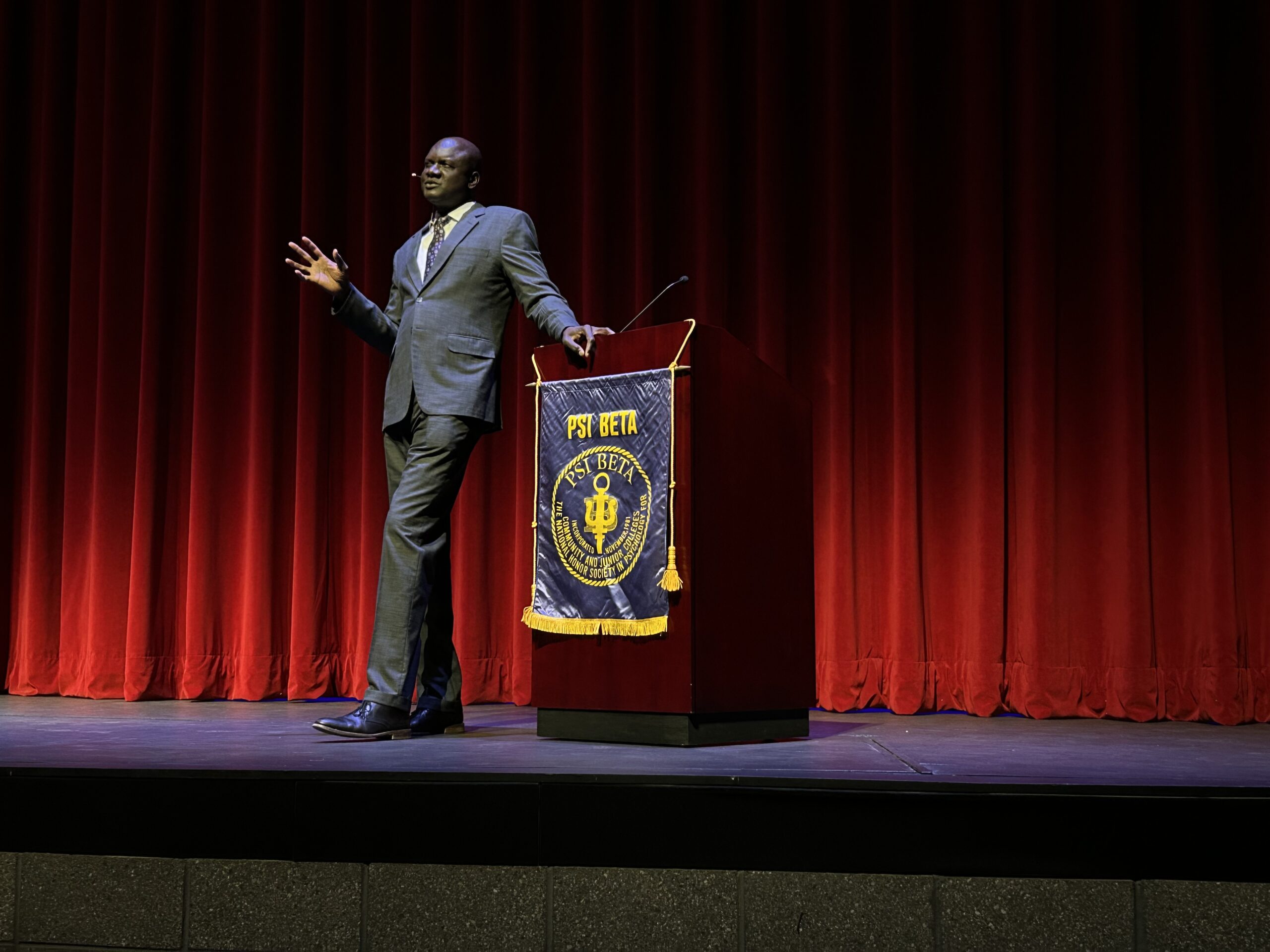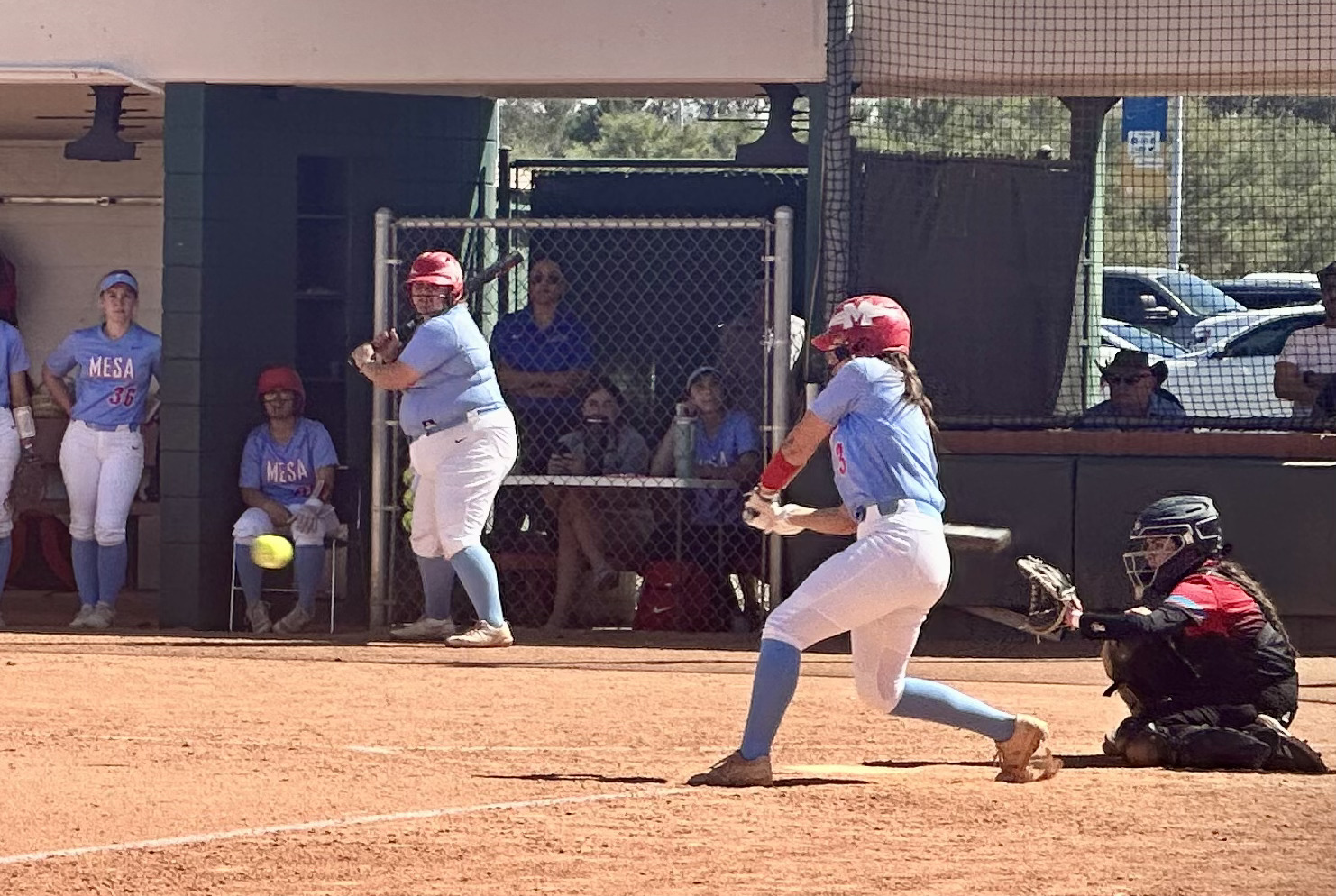Arizona journalism students’ First Amendment rights in the hands of state legislators
Sydney Ritter
Mesa Legend
Arizona high school, college and university student journalists and educators may soon get the same protection professional journalists receive. Senate Bill (SB) 1384 passed in the House Education Committee and will soon go for a vote on the House floor for a full vote. SB 1384 calls for the protection of student journalists and school-sponsored media under the the First Amendment.
Arizona Senator and Majority Leader Kimberly Yee (R – 20th District) is the sponsor of the bill. The bill permits student journalists to exercise freedom of speech or press in school sponsored media regardless if the school sponsored media is supported financially by the school or is produced in conjunction with a class. The bill does not authorize or protect classified content that includes information that is libelous or slanderous.
It does however, prohibits punishment of students and advisors who act in accordance with the requirements of this act and provides schools with protection from liability and civil or criminal action for the expression made by a student. The bill also goes as far as requiring school district governing boards to adopt written policies consistent with the content standards in this act.
Along with upholding the students rights, SB 1384 also protects professors and educators from getting terminated, suspended or reassigned for either acting to protect a student journalist and/or refusing to infringe on conduct that is protected by the bill. In February SB 1384 passed unanimously in the Senate. On March 6, it went to the House Education Committee to make it’s way to the House. Journalism educators, students and advocates arrived at the state capitol for a the hearing to lobby committee members on behalf of the bill.
Teachers and students from numerous high school newspapers spoke with committee members making the case that their rights as young journalists are as important as the professionals working in the industry. Sarah Windom is the style editor for the Cactus Shadows High School CS Press newspaper in Queen Creek. She was among the journalism educators at the hearing. “The idea that students who work on their local high school newspaper are being censored for writing truthfully is astonishing,” Windom said.
“Currently writers, editors, photographers and the teachers who supervise them can be punished for publishing the facts. While subjects that are censored are often controversial like teen pregnancy, drug use, politics, cheating and bullying, they are serious topics that need to be talked about intelligently and honestly no matter how administrators fear the school might look,” she added. Thunderbird High School student Erik Brock is a junior and one of the editors of school’s The Challenge newspaper.
While waiting to talk with a legislator he explained how during his freshman year he was asked to write a story on the school’s mascot and another time on the Presidential Debates, but both remained unpublished because of what he wrote about a presidential candidate during the 2016 election and about the school. “Senator Yee’s proposed bill directly speaks for the thousands of student journalists that wish to publish real news but are censored because they are deemed controversial,” said Brock.
Paula Casey, Executive Director of the Arizona Newspaper Association was among the professionals who advocated for the bill. “When it comes to student journalism, ever since the previous Tinker and Hazelwood cases passed in ‘69 and ‘88, those two cases went a long way in limiting what student journalists could do,” Casey said. “And Senate Bill 1384 is really an effort that is going across the country.”
Tinker vs. Des Moines was a 1969 Supreme Court case decision that focused on whether a school’s disciplinary action violates student’s First Amendment rights. In 1965, several students in Des Moines, Iowa, planned to wear black armbands to school in protest of the Vietnam War. School officials learned about the plan and immediately created a policy. It called for the ban on wearing of an armband in protest of the war, and those who refused to comply with the policy would be suspended. The Court ruled in favor of the students, arguing that First Amendment applied to public schools.
But in the 1988 Hazelwood vs. Kuhlmeier case, the Supreme Court overturned a District Court decision that sided with a group of journalism students who argued their First Amendment rights were violated. In 1983, a student high school newspaper in St. Louis County, Missouri was prepared to publish its paper that included a couple of stories related to divorce and teen pregnancies, of which identities of those interviewed were not revealed.
The principal removed those stories from the paper because he found that part of the written material would be inappropriate for some of the young readers, other perspectives on an issue needed to be included in the story, and identities could not be fully protected.
The lower court agreed with the school, the District Court of Appeals overturned it, but the Supreme Court reversed the district court’s decision citing that school officials could censor materials of school-sponsored expression if the material causes substantial disruption in the school or invades the rights of others. While many journalists and educators support the Arizona proposed bill there are still those who are not ready to pass it through, including Arizona Senator Itasca Small (R – 25th District).
(See SENATE, pg. 5)









